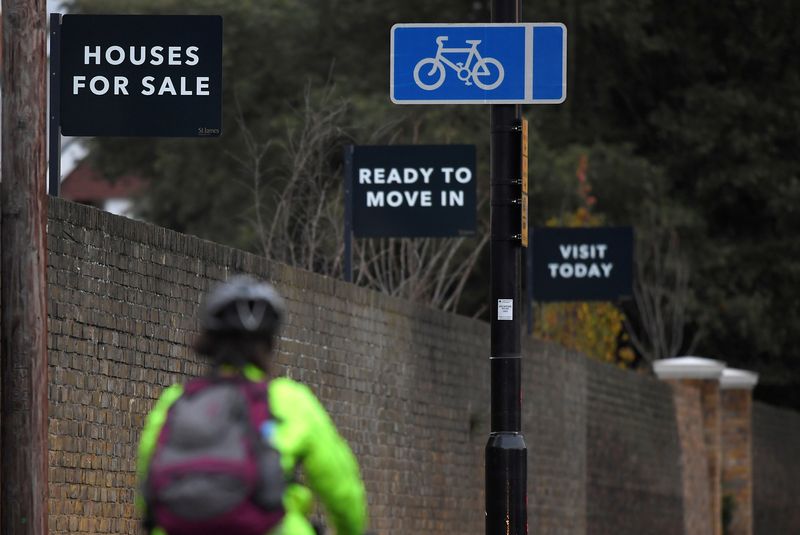LONDON (Reuters) - British house prices are expected to rise around 2% next year, little changed from this year, as uncertainty around Brexit is likely to lift only briefly, the Royal Institution of Chartered Surveyors (RICS) said on Thursday.
Britain's housing market has lost momentum since June 2016's referendum on leaving the European Union. During this time, prices fell in London and surrounding areas owing to a rise in property purchase taxes and concerns about Brexit, though modest growth continued in other parts of the country.
Despite Prime Minister Boris Johnson winning a large majority at last week's election, taking the risk of a no-deal Brexit off the table for Jan. 31, RICS said Brexit uncertainty was likely to resume, and weigh on prices and sales volumes.
"Challenges around affordability and low stock levels will continue to drag on the market, and Brexit uncertainty could resurface as the next deadline draws closer," RICS economist Tarrant Parsons said.
Johnson has vowed not to extend a post-Brexit transition period past the end of 2020, regardless of whether he can secure a trade deal with the EU to avoid economically damaging tariffs and checks on British goods from 2021 onwards.
RICS's forecast is similar to the average in a poll of economists conducted by Reuters last month, which predicts a 1.5% rise for 2020.
Separate data from the Office for National Statistics on Wednesday showed house prices in October rose by an annual 0.7% across the UK, the smallest increase in more than seven years.

RICS said rents were expected to rise further and at a faster pace by 2.5% overall and by 3% in London. The outlook for overall sales volumes is broadly flat.